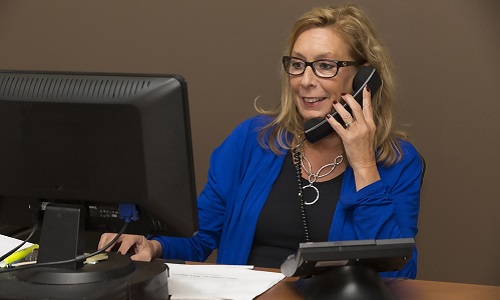You’ve found your dream house! Congratulations! Now it’s time to find a mortgage lender. Whether you’re a first-time home-buyer or have had previous experience, you should choose a Lender wisely.
Not all mortgage lenders are created equal, and it’s important to make wise financial decisions. To help you decide which lender is best for you, here are five questions to expect from a good, quality lender:
What is your employment situation?
Being able to prove you earn a steady income is high on a lender’s list if you hope to be approved for a loan. This question shouldn’t catch you off guard. A quality mortgage lender will want to know where you work, how much you earn, what type of contract you have, etc. If you are self-employed, it can be a bit tricky to prove employment and salary, as it can vary month-to-month. In that case, you may need to have two years under your belt and corresponding documentation so the lender can better estimate your annual salary and how much you will potentially make in the coming years as you pay off your mortgage.
Debts vs. Savings
Employment is not the only financial asset a good lender will take into account. They’ll also be looking at how much debt you owe or savings you have in your account (not counting the down-payment). Do you pay off your credit card bills on time and keep balances low? Do you have a good credit score? Is your income being diverted to other funds like car payments or tuition?
Although talking debt can be scary and might seem intrusive, the lender truly wants the big picture of your financial situation in order to get the best rates for everyone involved. On the flipside, they’ll also want to know what types of savings or other assets you have accumulated such as stocks, bonds and mutual funds and retirement accounts.
How much is your down payment?
The answer to this question can be very telling for a mortgage lender. Knowing how much you are willing and able to come up with for a down payment can be a helpful indicator to calculate your rate and loan type. If you put down 20% or more of the total purchase price, then you won’t be asked to pay mortgage insurance . If you do have to pay that insurance, the lender can take that information into account when creating your payment plan.
Is this an owner occupied home or an investment property?
What is the purpose of the property? Do you plan to live there or rent it out to others as an investment? Properties bought with the intention of it being someone’s permanent residence are slightly more favorable for lenders. And often investment properties and vacation homes have higher property taxes than houses for year-round living. Lenders will make note of this to make sure to calculate rates and figure debt to income rations accordingly.
Is there anything on your credit or background that we need to know?
A good mortgage lender will want to know as much about your situation as possible. If you have had any major occurrences, such as a bankruptcy or a foreclosure, it is important to discuss these with your loan officer so they can better prepare your application for review. Be prepared to give reasons and explanations for any derogatory credit in the most recent credit history. If you have any unpaid collections, tax liens, etc. your lender will need to know about them and decide what is important and what isn’t when it comes time to submit the file for underwriting.
These 5 questions are a good indication of whether the lender you’re speaking to is worth their salt. If you have answers ready for your conversation with the mortgage lender, they’re sure to be impressed!
Ready to have that talk? Contact us to find out more about your home-loan options.




